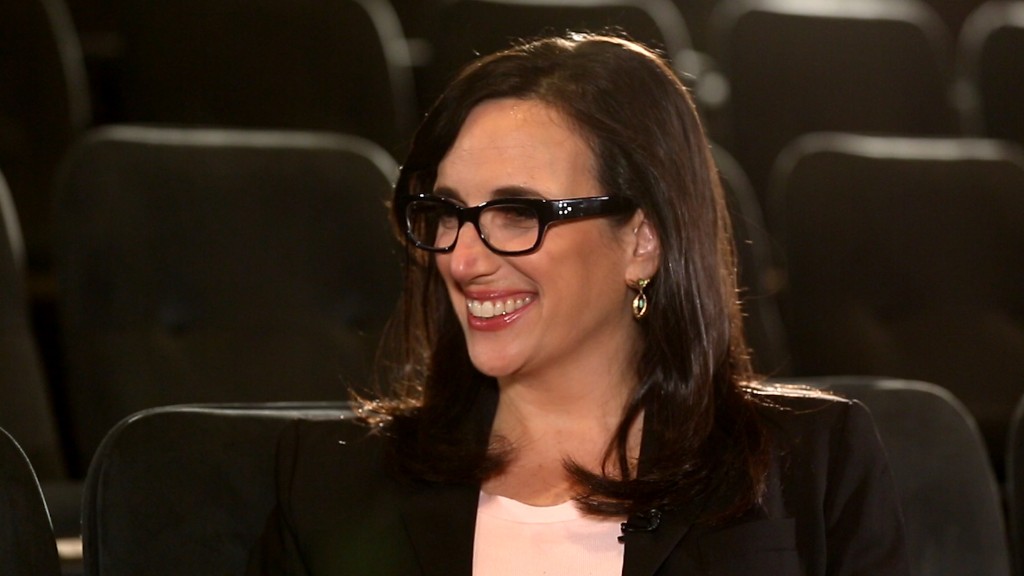
You've swiped right. They laugh at your jokes. Intellectually, you're inspired.
There are a lot of important dimensions to deciding on a life partner. But one that consistently gets overlooked is what they are like financially.
Though your financial chemistry may not be what's lighting you up right now, one of the most important things you can do as a new couple is to get to know each other money-wise.
Taking a relationship to the next level is often a key time to have a money talk. Finances should be talked about early and often to avoid larger conflicts, stress, and turmoil later on, says Megan Ford, a financial therapist based in Georgia.
"We are often conditioned to feel awkward and uncomfortable entering these discussions, even with the most intimate of partners," she says. "Money is cause for a lot of anxiety, guilt, and shame."
Getting that conversation going can feel weird. And busting out your spreadsheet over wine or whispering "I'll show you my Mint, if you show me your Betterment," in bed may not get the reaction you're looking for.
Ford suggests beginning with these conversation starters, instead. Of course, take the time to answer these questions for yourself, too.
1. "How would you describe your money habits?"
You may be someone who checks YNAB a million times a day, while your partner is too afraid to look at their credit card bills.
It's okay. This is a fact finding journey.
"This is not in an attempt to change them or judge," says Ford, "but to better understand what that part of their life looks like and how congruent or incongruent it may be to yours."
People often self-identify as "spenders" or "savers" but that can be relative or aspirational. Better to talk about actions.
"When you're contemplating a life together you want to imagine that life day to day," says John Rosenfeld, head of Everyday Banking at Citizens Bank. "What do they spend money on every day? And why?"
2. "How did your family handle money when you were growing up?"
Pro-tip: not a first-date ice-breaker question.
This is a deeper exploration for couples, says Ford, but it's all in an effort to better understand their habits and preferences: where did these come from and how did they develop?
Are you driven to save money because you grew up without a safety net? Maybe your parents never talked about money and it seems painfully uncouth to discuss.
"What you grow up with is informative for you and your partner," says Rosenfeld. "If you're marrying a person who came from a different background or lifestyle talking about it will help you understand their habits and expectations."
3. "What do you want your money to do?"
Asking about your financial hopes for the future is a broad question and could go in different directions depending on the couple, says Ford. "It helps you to get a better sense of what is important to you and your partner regarding money -- both in the shorter-term and down the road."
If your biggest priority is slaying debt, it may be good to know that your partner's financial goal is to buy a house with a home theater and a pool.
You probably won't agree. But, through discussion, your goals can be aligned.
"It happens often that opposites attract, and being unaware of your partner's tendencies is likely to create conflict if no conversations are had prior to encountering a problem," says Ford.
4. "What is your financial picture right now?"
This question should not make your partner feel like they are filling out the FAFSA all over again. Rather, it should lay the open and transparent groundwork for the financial life you'll share.
Is your partner strapped with loads of student debt? Do they know their credit score? Do they pay their bills?
In addition to what they have coming in income-wise, an understanding of their cash flow is important, too. Do they still receive financial support from parents or family? Do they have investments?
And better to come clean about that $12,000 in credit card debt now, so there aren't trust issues later.
"These may seem like touchy subjects for some," says Ford, "but as you're embracing a new stage in the relationship, you want to feel secure, in-sync, and informed."
5. "How should we organize our finances?"
"When you're thinking about joining finances, there is no one right answer," says Rosenfeld.
In addition to deciding how to divide up collective expenses, you'll need to also consider money coming in and who has access to what.
One of the most common solutions for couples is YMO accounts, or Yours Mine and Ours, says Rosenfeld.
This can provide increased flexibility moving funds around, especially when the accounts are at the same institution.
Rosenfeld also points out that when a marriage goes sour there are legal structures in place to protect the parties and un-joint the accounts. But with un-married couples, those legal protections do not exist.
Make your plan your own, says Ford. "More individualization to your financial structure and arrangements ends up being more successful."
